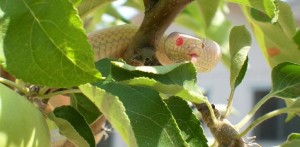
Scientists were searching for a lost frog that has not been observed in the wild for 25 years. There search did not turn up any of the elusive La Selle grass frogs but did turn up 6 species thought to be lost already. Scientists say it gives new hope for the biodiversity in Haiti as its forests have been ravaged by earthquakes and deforestation.




